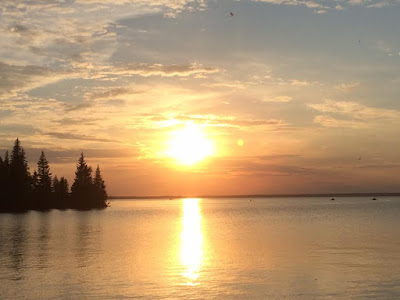In the Presence of Absence
To live in a place is to be keenly aware of the presence of absences. What makes a place a place, and not just a somewhere, are the particularities of the lives of that place and the stories those lives imply. To live in a place requires the development of a gentle love for that place. That the love must be gentle is required by the notion that love does not demand or consume its objects. This love is an entering into the presence of a place and its creatures - a sort of awareness that grows with time and attention. Over the time that is necessary to attune that attention to a place, there will inevitably be losses that, while real, do not make the place lesser, but rather fill that place with the memory of their presence. The gully that marks the beginning of the Snake Creek watershed that crosses our place is not made lesser by the absence of water from it in the late summer. Rather, it stands as a testament to the absence of water that came in the spring and will return again next s...
